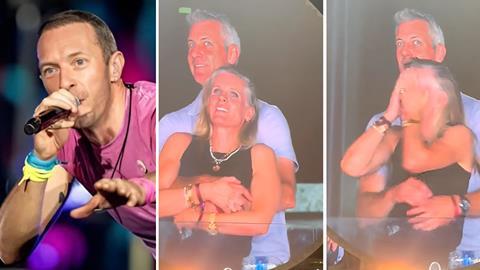When a scandal lit up headlines, Drew Cordell did what millions did - he clicked. But what followed wasn’t just a moment of guilty amusement. In this powerful reflection, he unpacks the deeper need behind our digital judgment reflex and why true restoration is found not in outrage, but in grace.
I imagine my reaction wasn’t unique. I laughed, made a sarcastic quip to my wife, and thought, Serves you right - got what you deserved. Then I went off to make the kids’ breakfast, having consumed my morning slice of digital amusement.
We move on from moments like that, believing our actions are inconsequential. After all, we’re a million miles away from the people involved - emotionally, geographically, and relationally. But that’s not true. My click helps keep the story alive. It feeds the algorithm, drives more eyeballs to gawk, judge, and mock. It contributes to the shame spiral of real human beings.
But that’s not even the most confronting part.
What unsettles me most is what it exposes in me: my need to feel moral.
That need is always there - sometimes strong, sometimes subtle - but always lurking. And stories like this, about strangers caught in awkward or humiliating moments, offer a perfect opportunity to feed that craving. I get to feel good without actually doing good. I get to judge without risking being judged. And all from the safety of my phone.
This isn’t just a digital-age quirk. It’s a very old instinct.
Jesus often encountered it in the people around him. He was regularly challenged to pass judgment on “sinners,” outsiders, and moral failures. But instead of condemning, he’d hold up a mirror. Again and again, he exposed the deeper insecurity in the accuser, not just the flaw in the accused.
He wasn’t saying right and wrong didn’t matter. Quite the opposite. He was highlighting our shared condition: we’re all broken. And for that, he offered not shame, but a solution.
To those caught up in the Coldplay mess, I’m sorry. I’m sorry for clicking. I’m sorry for deriving joy from your pain. I’m sorry for using your embarrassment to feel a little more righteous myself.
I’m just as broken as you are.
But more importantly, I - and you - are loved, valued, and cherished beyond anything this world can offer or take away. That’s what Jesus came to show. That’s what he still offers: a love that restores, not shames. A peace that heals, not humiliates.
I pray that through this storm, you encounter that love. The real kind. The kind found only in Christ.
Drew Cordell is a business consultant who has worked alongside some of the world’s most successful businesses and their leaders in an extensive corporate career in both London and Australia. His new book, Honest Christianity: Why People Choose to Believe, is available on Amazon and all good bookstores.





















